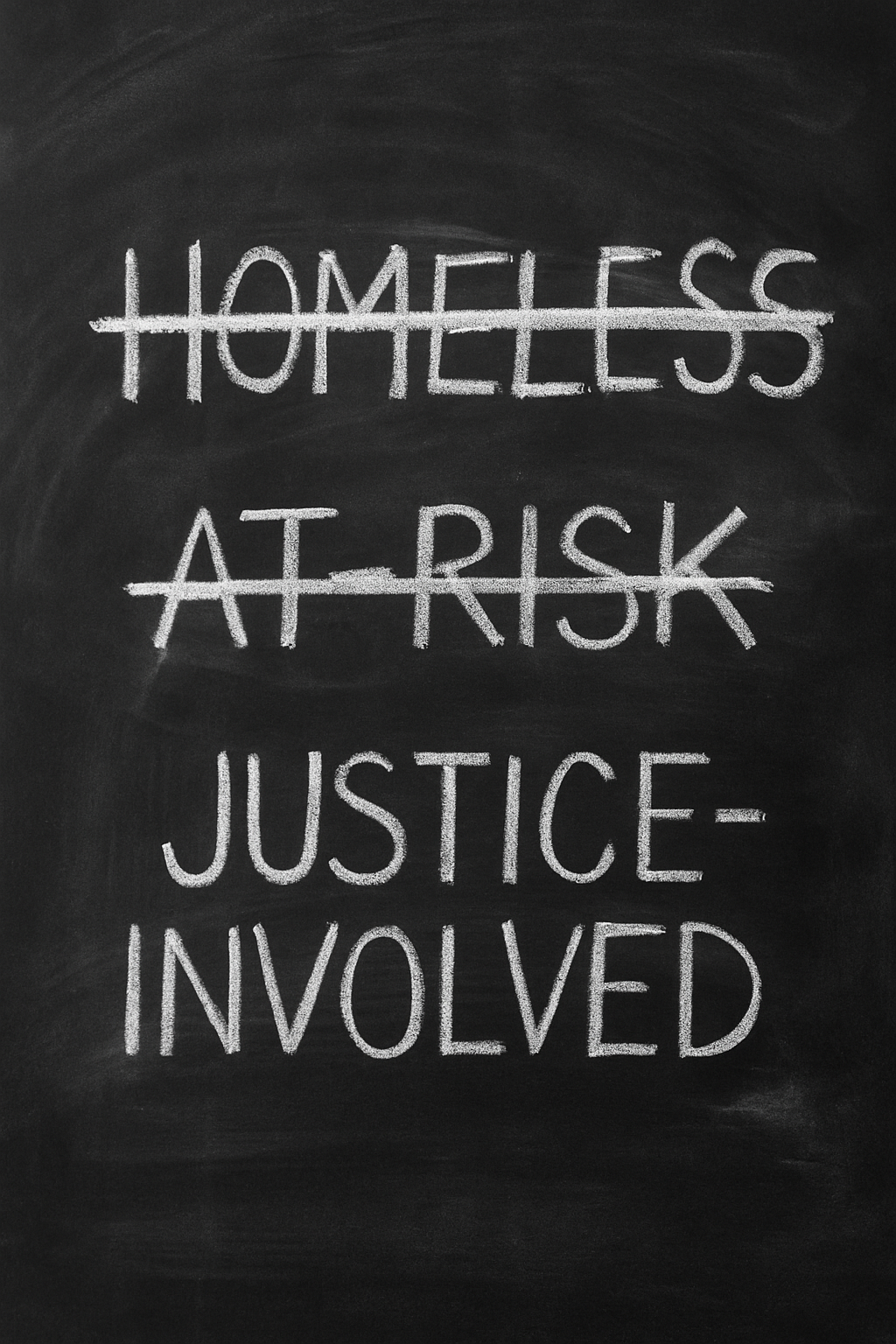Words We Inherit, Harm We Perpetuate
We don’t always notice the harm because it’s built into the language.
Into the grant reports.
The onboarding trainings.
The mission statements.
But when we talk about “at-risk youth,” “financial literacy,” “the formerly incarcerated,” or “the homeless,” what we’re often doing, without meaning to, is shrinking people down to their wounds or proximity to systems. These terms didn’t come from community. They came from power.
I believe language isn’t just descriptive, it’s directive. The way we name people shapes the way we treat them. The words we inherit often carry traces of the systems we claim to resist. That’s why I’m inviting us to look closer. To listen harder. Because if our work is rooted in love, our language has to be too.
Inherited Language, Institutional Roots
So much of nonprofit language was never meant to dignify; it was built to categorize, fund, track, and fix. It reflects a legacy of deficit thinking: see what’s broken, label it, intervene.
We’ve inherited this language from criminal justice systems, academia, philanthropy, and social work models built on pathology. And while many of us use it with good intentions, we have to name that good intentions don’t prevent unintentional harm.
Take a look at some of these:
“Disconnected Youth” — Disconnected from what? Often, they’ve been pushed out, not just passively “disconnected.”
→ Try: “Opportunity-Excluded,” “Transitioning Youth,” or simply “Young People.”“Financial Literacy” — As if the issue is personal ignorance, not generational wealth extraction or systemic exclusion.
→ Try: “Economic Agency,” “Wealth Wisdom,” or “Liberatory Economics.”“Formerly Incarcerated” — True, but that label centers the punishment, not the person. And calling it “justice-impacted” suggests fairness where there often was none.
→ Try: “System-Impacted,” “Returning Neighbor,” or simply “Community Member.”“At-Risk Youth” — Risk of what? Risk to whom? This phrase defines young people by their proximity to failure and erases the systems that put them there.
→ Try: “Underestimated Youth,” “System-Impacted Youth,” or “At-Promise”—an ode to the @ Promise Centers in Atlanta, GA.“Homeless” — Reduces identity to circumstance. No one is their housing status.
→ Try: “Unhoused,” “Housing-Insecure,” or “Experiencing Displacement.”
These words may sound neutral. But neutrality is often a mask for power. And when we normalize deficit-based language, we end up shaping deficit-based programs—programs that manage people, rather than liberate them.
The Real Cost of the Wrong Words
When we describe people only by what they lack, we reinforce the idea that they are the problem, and we become the fixers. That’s saviorism, not solidarity.
These terms also dictate funding priorities. If the language in your grant says “at-risk youth,” then the program gets built around risk, not around brilliance, resilience, or promise. When we speak harm, we program harm, even if the heart behind it is full.
Words shape policy. Words shape perception. Words shape practice.
Reframing as a Practice of Love
Choosing better language isn’t about being performative or politically correct; it’s about being precise. Being loving. Being aligned.
I’m not saying throw out every term or cancel colleagues who use institutional language. I’m saying start noticing. Start asking. Who gave us these words? What do they obscure? What would it mean to name people by their wholeness, not their wounds?
Liberatory language doesn't erase struggle; it holds it with dignity. It reminds us that people are more than their paperwork, their past, or their pain.
Let’s Speak Differently, So We Can Build Differently
If we want to build systems that heal instead of harm, we have to start with the words that shape those systems. We can’t fight for liberation while using the language of containment.
So here’s the invitation:
Look at your org’s website.
Your program materials.
Your elevator pitch.
Do the words reflect your values, or the systems you’ve outgrown?
It’s not about getting it perfect. It’s about getting more aligned.
Because the words we use are not just reflections of thought, they are blueprints for action. And our people deserve language that builds bridges, not boxes.
Let’s speak in ways that dignify.
Let’s name in ways that restore.
Let’s write like freedom is possible, because it is.

